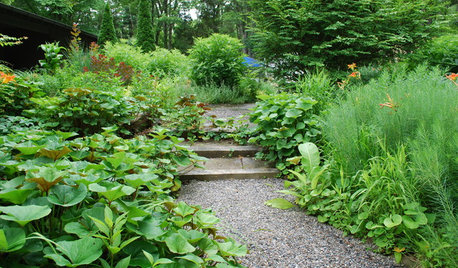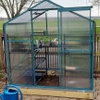Scientific American Article 'The Case Against Heirlooms'
yumtomatoes
12 years ago
Related Stories

HOUZZ TOURSMy Houzz: In Brooklyn, Family Heirlooms and a Global Perspective
Family keepsakes, African art and black walls add character to a couple’s New York apartment
Full Story
CRAFTSMAN DESIGNAmerican Architecture: The Elements of Craftsman Style
Proud of its handiwork details and with nature as inspiration, Craftsman architecture stands out for its purity of style
Full Story
DECORATING GUIDESCelebrating the Great American Quilt
They speak of family, history and beauty. Is it any wonder quilts transcend design styles?
Full Story
ARCHITECTURETimeline of American House Styles
Inspired by the Super Bowl commercials, a visual narrative of American home design
Full Story
MOST POPULARHow to Hang the American Flag at Home
We’ll show you how to display the American flag on your house for Memorial Day, the Fourth of July or all year round
Full Story
LANDSCAPE DESIGNTour a New American Garden in New Jersey
See how James Golden built his garden in a depression with wet clay and rogue cedars
Full Story
EARTH DAYThe Case for Losing the Traditional Lawn
Work less, help the environment and foster connections by just saying no to typical turf
Full Story
DREAM SPACESDesign Workshop: The Case for Big Overhead Doors
Garage-style doors are cost-effective solutions for opening rooms to dream views and fresh air — and they’re more stylish than ever
Full Story
COLORCase Study: Turn Your Wall Colors Into Art
Give your walls an artistic edge with creative color blocking that complements your architecture
Full Story
DECORATING GUIDESKitchen Confidential: The Case for Corbels
Get the skinny on the different types of brackets and how to use them in the kitchen
Full StoryMore Discussions







ralleia
carolyn137
Related Professionals
Foothill Ranch Landscape Architects & Landscape Designers · Apollo Beach Landscape Contractors · Hampton Bays Landscape Contractors · Paramount Landscape Contractors · Placerville Landscape Contractors · Soddy Daisy Landscape Contractors · Eastlake Landscape Contractors · Maple Heights Landscape Contractors · Binghamton General Contractors · Endicott General Contractors · North Tustin General Contractors · Lansdale Decks, Patios & Outdoor Enclosures · Natick Decks, Patios & Outdoor Enclosures · Saint Louis Park Decks, Patios & Outdoor Enclosures · Villa Park Decks, Patios & Outdoor Enclosuresralleia
yumtomatoesOriginal Author
yumtomatoesOriginal Author
digdirt2
Bob1016
mulio
yumtomatoesOriginal Author
mulio
springlift34
mulio
springlift34
soilent_green
goggomobil